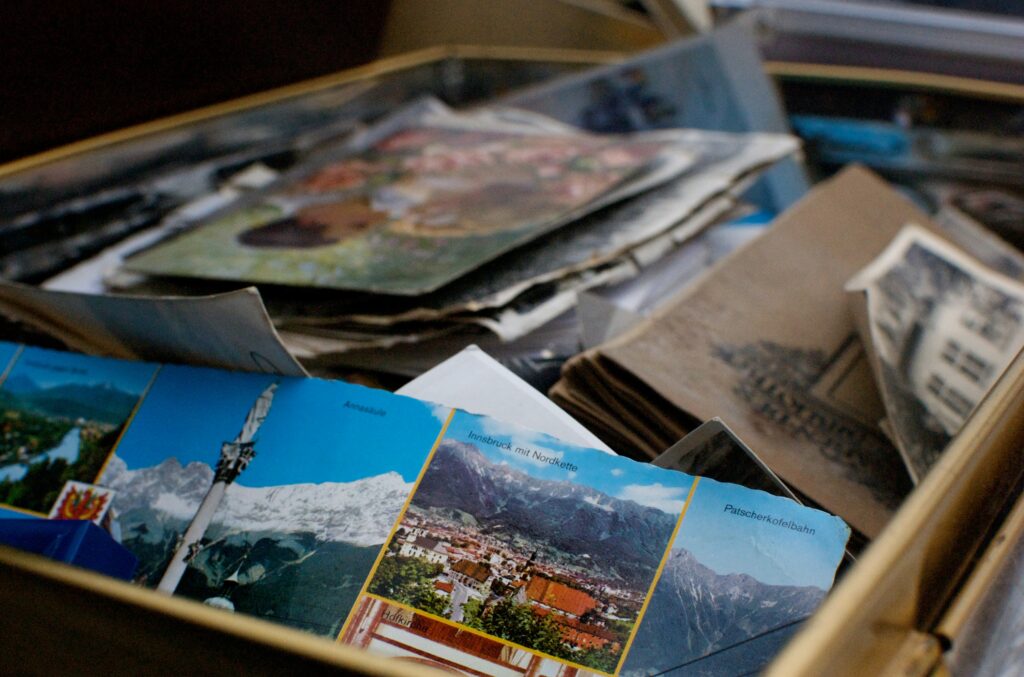“We leave something of ourselves behind when we leave a place, we stay there, even though we go away. And there are things in us that we can find again only by going back there.” – Pascal Mercier
Whether you are going for a semester exchange or leaving your home country to embark on your full university journey, the butterflies and jitters are all the same. Before going on my semester exchange to Germany, I did a lot, and I mean a LOT of reading in an effort to prepare myself.
Going abroad takes a lot of preparation. Both mentally, sometimes physically because of all the tests you have to present as a requirement for your visa. And always financially, because yes, in this case, money does make the world go round.
So, to give you an idea of what to do to prepare yourself, here are some tips and tricks to ensure you start this experience on the right foot.

- Ensure that you have all your legal documents and copies of everything in a separate binder. This includes scholarship award letters and university acceptance letters, as immigration officials could ask for them at the border. Have your high school leaving certificates, signed rental contracts, and copies of your birth certificate. It goes without saying that your documents should not expire anytime soon, i.e. your passport. Furthermore, find out if there is an embassy or consulate of your country where you are going. The embassy will be your first stop should you be in a legal emergency or pickle with the authorities.
Silvanus Nangolo, a former exchangee, advised everyone to do all necessary paperwork on time and, when applying for a visa, to try and get a 1-year visa instead of the 6-month visa.
“It will save you in case you get an opportunity there that would require you to extend your stay,” Nangolo said. “Also, always be nice to the people around you; you’re always going to need help from them now and then.”
- Arrange for someone to pick you up from the airport. Sometimes your host university may pair you up with a buddy, or if you know somebody from there, you can ask them in advance to pick you up. If you don’t know anybody in the country that you are going to, either ask friends of friends of friends on social media, or when you do get to your country, you can use Google Maps to help you move from the airport to your accommodation. Ensure that you purchase a SIM card at the airport to have data between transfers or otherwise have international roaming bundles before you leave. Oftentimes, airports have Wi-Fi, but that is not reliable.
- Discuss with your roommate or the people you’re sharing an apartment with the expectations, roles, and responsibilities. In my case, I only shared the apartment with a girl also from Namibia, and she was neat and tidy, so although we didn’t necessarily have this conversation and divided responsibilities, we both kept the apartment clean. However, this may not be the case for you. Thus, it is best to have this discussion as early as possible so that everyone in the shared living space starts off on the same page. Another topic to discuss is shared bills, such as electricity and water. Usually only one ‘account’ per apartment pays for this, so figure out who will be receiving everyone’s contributions and make the payments on time.

- Try to learn the language. If you are going to the United States, you don’t need to do much since most people speak English, but people in Europe generally speak the official language of their country, so that’s either German, Spanish, French, Italian, etc. It is to your advantage if you learn simple phrases like “Hello, how are you?” “I would like to pay with a card,” or “Where is the bus station?” Verify with your receiving university if they offer short language courses. These are usually offered before or at the very beginning of the semester as an intensive course. Definitely sign up. You will never regret learning a new language.
Joyce Nghiitete, a former exchange student, advised students who have a language barrier to be very communicative with their lecturers because they know you won’t understand all the course content.
“Send emails for confirmations, and speak to them after lessons for clarity, especially on the assignments, as that’s all they will care about at the end of the day,” Nghiitete said.
- Mix with the locals! Depending on what you’re into, you can meet locals with shared interests! Go to the local church, skating park, gym, parade, whatever it may be, and don’t be afraid to be the first to approach someone for a conversation. In my experience, most people look like they are not up for talking, but once you start with “Hello,” they light up, and before you know it, you are making plans to get a coffee. Through engaging with the locals, you can also practice your language skills and learn more about the cultural norms, which helps you integrate better in the society.
- Build a community. I cannot stress this enough. You may be going with a friend or even know family members in the country you are going to, and that’s wonderful to have that security to receive you on the other side, but sooner or later you’re going to want to form fresh friendships with other people. Join student networks and clubs, mingle with your classmates, attend parties, and if you connected with people as in the previous tip, do your part in trying to make the friendship bloom.
Everyone loves meeting and engaging with new people, so don’t be afraid to make the first move and ask someone out for lunch or drinks. The university may have an orientation and other meetings where they bring students together. Those are your opportunities to observe people, see who you would like to be friends with, and connect. Based on my experience, the people you connect with from day 1 are usually the ones you stick with throughout the semester or year.
“Make connections, mix, and integrate. Get to know not only the students from the host country but also other exchange students. You’ll be very surprised as to how it’ll not only be easier to mix with and relate to other exchange students, but it’s also a way of creating bonds. You never know; you might just happen to one day end up in their countries, and you’ll be at ease just knowing you’re going to an unfamiliar place with familiar faces,” Nghiitete expressed.
Don’t isolate yourself. Be as open to the experience as you can be.
Tuna Nkandi
- Say ‘no’ less and ‘yes’ more! This may be your only time to experience the city, the people, and the opportunity, so say yes more. Got an invite for a movie night? ‘Yes’. Even when you planned to stay in and work on an assignment? ‘Heck yeah!’
Why? Because those are the moments you will remember; not you sitting at your desk at midnight typing your assignment, but rather, you at that gathering with other students and having the best time. An experience I’ll never forget is when I went out on a Tuesday evening with the Erasmus cohort to a club in a nearby city, partied all night, and then we all took the train back to our city the next morning at 5a.m. and had to be in class by 8a.m.
“The best experiences are always unplanned.”
- Now, of course, you need to put the ‘study’ in study abroad. If you are an exchange student, you may see that you only have three 2-hour classes a week, for example. That means you have ample free time, so use that to get your notes in order, work on your assignments, and study or revise for tests or exams. Take note of your assignment deadlines and examination dates and set reminders on your calendar a week in advance if necessary. The time will fly by, you will be so busy, and you may forget some things. If your professors are kind, they may grant you an extension, but you make a better impression if you submit your work on time. You don’t want to be known as that exchange student who keeps missing deadlines.
“Use the exchange as an academic breather; yes, it’s still school; you’ll need to study, but compared to NUST, it’ll be like a holiday break. Don’t stress that much,” Nghiitete said.
“The beautiful thing about studying abroad is that you don’t study very much.”
Stephanie Wilson
- Speaking of budgets, keep a tight lid on your bank account. You’ll be surprised by how many taxes, fees, and bills you will need to pay, so do not splurge as soon as the money hits your account. You could either pay your entire rent, health insurance, and all those huge fees at once so that you can go the rest of the semester or year without worrying about bills creeping up, or you could pay monthly and keep an excel sheet on the payments you have made so that you have an overview of how much is left. It’s wise to set up a SEPA transfer so that these bills are deducted automatically.
“I would advise setting up a budget a month or a few weeks after arrival to help you keep track of expenses and avoid running out of money,” Jenielle Titus shared. “Perhaps even put some money away as savings to have a safety net in case you overspend.”
- When you’re in a new environment, it’s a great time to do something new. If you are going on a Schengen visa in Europe, you don’t need visas to go to neighboring countries. So, you can visit Spain, France, Poland, Germany, Italy, Greece, Portugal, etc. Check out all the Schengen countries at your fingertips. You may wish to go with someone, but going alone is absolutely okay too! Just plan where you will stay, look up which galleries or museums to visit, how to get around the city, and calculate the costs so that you know how much to budget.
And always tell at least four people (preferably a local friend or two, a lecturer you are cool with, one of your friends, and your parents back home) where you are going and keep them updated on when you have arrived and when you’ll be returning. The more people who know where you are, the quicker help can arrive should anything happen during your trip.

- Keep your memories! Obviously, this is an unforgettable experience, and you will have pictures, videos, and everything in between to prove that you did in fact go abroad for your studies. However, it’s also about the little things. Your boarding pass, a leaflet you got in the street, a cup from your university, that unexpected bill in your mail… These all form part of the bigger experience. It may look like junk, especially when you are going around keeping napkins, stickers, posters, brochures, receipts, and tickets, but trust me, all those little things have a story to tell.
You may wish to keep a journal and write about your day. I did too, but life got pretty busy pretty quickly, and I soon resorted to voice recordings as I went about my day. I recorded the really good things, such as my professors telling me my work is excellent; the frustrating things, like missing the bus; and even the bad things, like experiences with discrimination. Whatever you will experience, try to find a way to document it. You may never think about it again, but when you go down memory lane ten years later, you will realise that you lived through so much in such a short time!
Students should try to be open-minded about the new experience. If you have preconceived notions about what it should be like, you are less likely to have an enjoyable experience.
Jenielle Titus

This is a mouthful, but I hope that as you prepare to embark on this incredible journey, you take these tips into account to make your experience one of a kind. If you have gone abroad to study before, share your tips and tricks with prospective students. And if you are leaving soon or are already in your study destination, engage with us so that you can do an Instagram takeover and show us your new campus and beautiful city!








beautiful article !!!!